Keywords: Borders
There are more than 200 results, only the first 200 are displayed here.
-

INTERNATIONAL
- Gillian Bouras
- 19 April 2016
10 Comments
Pope Francis recently visited the island of Lesbos, another scene of immigrants' dire suffering, and surprised the world by taking 12 refugees back to Rome with him. Bernie Sanders asserted that the Pope, in his gesture of hope, is surely the greatest demonstration against a surrender to despair. I am still partly persuaded by Graham Greene's view of despair as being the unforgivable sin, but I'm also giving some thought to the distressing matter of indifference.
READ MORE 
-

AUSTRALIA
- Binoy Kampmark
- 24 February 2016
3 Comments
On Sunday, Immigration Minister Peter Dutton seemingly relented, allowing the child to be released into community detention rather than carting her off to Nauru. It has, however, been made clear that this is no prelude to settlement in Australia. Dutton's line goes to evenness in policy: 'We are going to have a consistency approach here ... intelligence out of Indonesia recently was that people smugglers were reporting ... there was going to be a change in policy.' None of these arguments passes muster.
READ MORE 
-
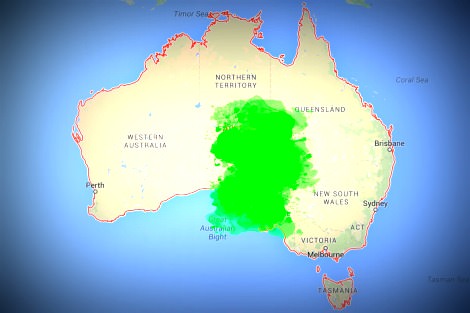
ENVIRONMENT
- Michele Madigan
- 10 February 2016
8 Comments
The South Australia Royal Commission into the nuclear fuel cycle will give its interim report at the Adelaide Town Hall next Monday. It is likely the Commission will recommend that the South Australian Premier's plan to import international high-level radioactive waste proceed, despite obvious risks and clear dangers. It would be a mistake for anyone living outside of South Australia to think that this is just a South Australian problem. Transport and containment risks are hugely significant.
READ MORE 
-
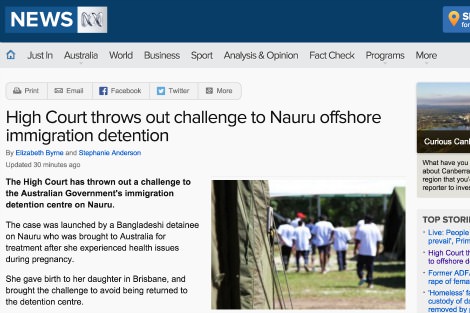
AUSTRALIA
- Frank Brennan
- 04 February 2016
24 Comments
Following Wednesday's High Court decision, the moral depravity of Australian funded offshore detention of asylum seekers, including children, is to continue. There is no joy to be found in our High Court applying a Constitution even more bereft of human rights protections than that of Nauru. It's time for our politicians to address the political and moral question: what purpose is actually served by sending this mum and her baby back to Nauru, when the boats have already stopped and will stay stop?
READ MORE 
-

AUSTRALIA
- Andrew Hamilton
- 21 January 2016
7 Comments
In our response to the forced movement of peoples we must recognise that our national identity is not built primarily on uniformity of religion and race but on adherence to the values that are enshrined in our social institutions. We must also recognise the way in which our own prejudices and fears affect the judgments and proposals we make, and exercise a proper scepticism about making quick judgments and drawing universal conclusions from particular events such as those in Cologne.
READ MORE 
-
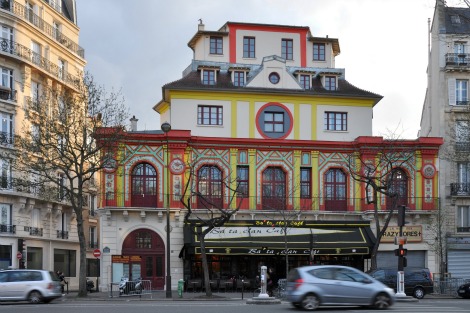
INTERNATIONAL
- Bronwyn Lay
- 14 January 2016
3 Comments
As I marched for Remembrance Day in our small village in France, I wondered, 'How long will these villages keep these ceremonies? When will someone decide these wars are too long ago or too far away?' Two days later, Paris was attacked. The news came like war does: sudden and violent. Then came declarations of a state of emergency and the closing of borders. My eldest daughter was over the border in Switzerland without a passport. War starts in increments, in the small ordinary worries of families.
READ MORE 
-

AUSTRALIA
- Justin Glyn
- 11 January 2016
4 Comments
Health care professionals at the Royal Melbourne Children's Hospital have begun to do what could not be achieved by reports from the UN Special Rapporteur on Torture and Australia's Human Rights Commission. The doctors and staff are refusing to release children they treat back to the detention which caused their problems in the first place. By this brave act has begun the slow task of pouring daylight (always the best antiseptic) into this gaping wound in Australian society.
READ MORE 
-

RELIGION
- Frank Brennan
- 27 November 2015
2 Comments
'The crisis of child sexual abuse in our societies has required that our institutional procedures be more transparent and that we learn from the ways of the world in exercising power openly and justly. This means we have to restructure some of our church arrangements so that power is exercised accountably and transparently. All of us who have positions of influence and power in institutional churches need to be attentive to the voices of those who have suffered within our institutions.' 'Discerning the place for the prophetic voice and pragmatic cooperation of the churches in the great moral questions of the age', address to the Association of Practical Theology in Oceania conference, 26 November 2015.
READ MORE
-

INTERNATIONAL
- Bronwyn Lay
- 16 November 2015
16 Comments
As I marched for Remembrance Day in our small village in France, I wondered, 'How long will these villages keep these ceremonies? When will someone decide these wars are too long ago or too far away?' Two days later, Paris was attacked. The news came like war does: sudden and violent. Then came declarations of a state of emergency and the closing of borders. My eldest daughter was over the border in Switzerland without a passport. War starts in increments, in the small ordinary worries of families.
READ MORE 
-

ARTS AND CULTURE
- B. N. Oakman
- 10 November 2015
7 Comments
I'd never met a Vietnamese, couldn't figure what we had against them. But we were raised in shadow of returned men, the shimmer of lapelled bronze, a presumption we in our turn would go when ordered ... Most of us dodged gap years of sweat and khaki, missing madness, maiming, napalm, agent orange, learning how to kill and to piss ourselves out of fear. Instead we were granted head starts with women, front marks in the greasy pole dash, a less congested clamber to unremarkable lives.
READ MORE 
-
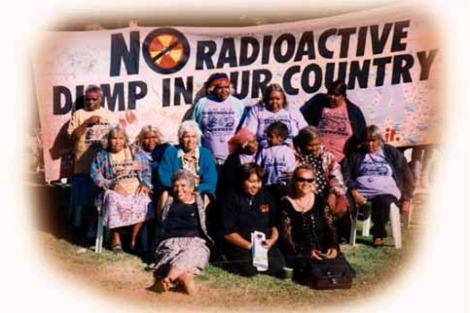
AUSTRALIA
- Michele Madigan
- 10 November 2015
18 Comments
The budget for the 2015 Indigenous Advancement Strategy funded South Australian Aboriginal communities less than ten per cent of what they required, and some received nothing at all. So with the prospect mooted of the state hosting a depository for the world's high-level radioactive waste, it's a very relevant concern that some communities might be enticed to offer themselves as a site. This is not only a justice issue for those communities; the environmental implications are far-reaching.
READ MORE 
-
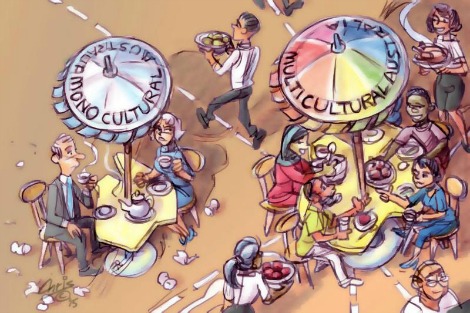
AUSTRALIA
- Gabriela D'Souza
- 09 November 2015
10 Comments
George Megalogenis describes a protest rally in 1849 organised by residents of Sydney against arrivals of more convict boats. Workers who 'wanted to maintain their high-wage society' made 'the first of countless calls that would be made against migrants who threatened to undercut their standard of living'. It is a familiar refrain today. In a world where three-fifths of a person's income is determined by their place of birth, it defies logic that we place restrictions on people's movement to preserve our standard living.
READ MORE 